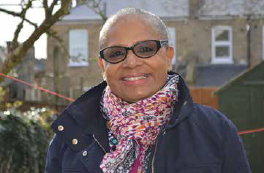Our story
The idea for a new individualised self-management programme started in stroke building on PhD work carried out by Professor Fiona Jones. Since 2008 health care practitioners and teams across the UK have used Bridges self-management programme as part of rehabilitation and care. Our multi-disciplinary training, co-produced tools and consultancy have now expanded to deliver self-management support for people living with other acute and term conditions including brain injury and acute trauma.
Our work continues to be informed by an active programme of research and development
Our early work in stroke demonstrated proof of concept and impact on activity, participation, mood and self-efficacy of people following stroke. The Bridges workbook has been an integral part of our support package since 2008 and promotes self-efficacy through encouraging mastery experiences and modelling through case studies of other people with stroke. The tool embodies our approach to self-management and creates a structure for a new way of working for practitioners.
The programme was piloted in three sites in the UK and the stroke workbook and training workshops for practitioners were launched following feedback from the sites. An advisory group, including patients and carers was formed to help steer and contribute to the direction of Bridges. Our website was launched and different ways of disseminating and sharing our findings through newsletter and bulletins. The first annual Bridges symposium was held in 2010 attracting over 120 different stakeholders with an interest in self-management support.
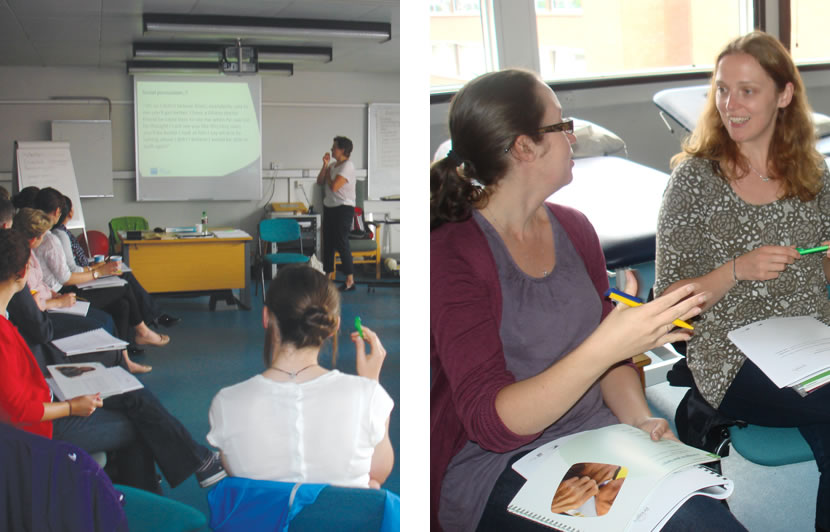
Bridges workshops commenced in 2009 for stroke teams across the UK and evaluations showed that practitioners changed their practice as a result, leading to a transformation in traditional professional-patient relationships providing more control for stroke survivors to make decisions about their rehabilitation.
Bridges was adopted as a priority project by the National Stroke Improvement plan in 2009 and cited as exemplar case study in the ‘Life after Stroke’ commissioning guidance for London in 2010. In 2011, a project funded by the South West London Academic, Health and Social Care Systems (SWL AHSCN) evaluated the introduction of Bridges in the stroke pathway in Kingston, Surrey. Bridges was shown to change attitudes to self-management and improve cross team working. These findings led to further awards from SWL AHSCN in 2012 to explore the ‘Sustainability of Bridges one year on’. This was the first evaluation of the impact of Bridges in the longer term, and led to our master class training for ‘Bridges champions’ launched in 2012 , in which senior stroke practitioners were supported to use a whole systems approach to self-management.

Research projects since 2010 have shown that practitioners trained to use Bridges have changed their attitudes, beliefs and practice towards using a self-management approach. Whole stroke pathways (hospital and community) have improved consistency in how self-management is integrated into rehabilitation. Our research also showed distinct changes in the use of self-efficacy principles, and a different approach to goal setting which better support patients’ self-management and confidence to continue to progress after discharge from rehabilitation.
Bridges has been through several stages of evaluation and a cluster feasibility trial was completed with London stroke teams in 2013, which showed it was possible for whole teams to deliver an impact on clinical outcomes such as functional capability and quality of life whilst integrating a self-management approach into existing rehabilitation. The programme was acceptable to patients and their families, and observational work showed a tangible difference in the language and nature of interactions in those trained to use Bridges.
In 2013 Bridges won an award from The Health Foundation together with Dr Petra Makela from Kings College Hospital, London to develop Bridges for people with traumatic brain injury. This work spearheaded our next stage of development, with exciting new projects to co-produce a workbook for people following traumatic brain injury and their families, and new training for the neurotrauma workforce at Kings College Hospital London.
Our milestones
2005
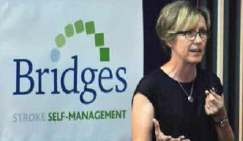
Bridges stroke self-management programme developed by Fiona Jones
2006/7
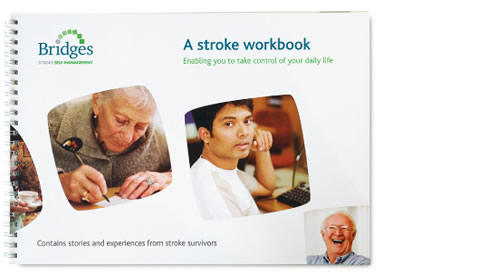
Grant to develop workbook and training
2008/9
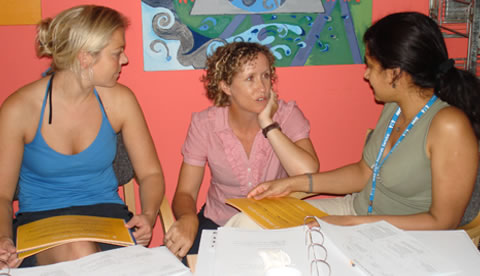
Advisory group formed, and first workshops delivered – first annual symposium, publicationsg
2010

Name change from Stepping Out to Bridges, received Unltd award
2011
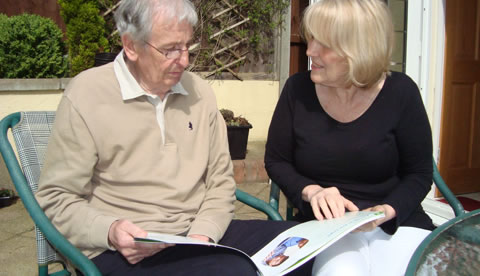
NIHR grant received, and further awards to develop and test Bridges
2012
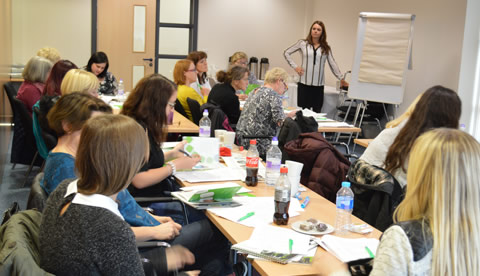
Unltd award – 30+ workshops delivered in UK and first in New Zealand
2013
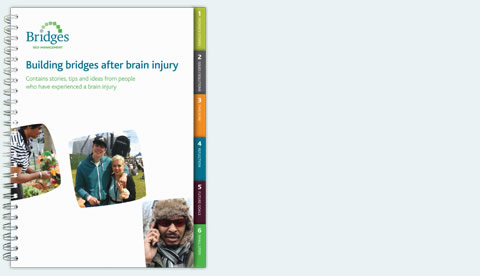
Spin out achieved from Universities, Shine award to develop Bridges for people with Brain Injury
2014
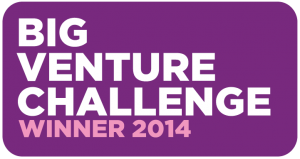
BVC award winner, 75 workshops, 2 Whole Systems Contracts won, 5th Annual symposium held attended by 150 stakeholders
In 2014 we won a Health Education South London Innovation award to develop resources for people with other long term conditions, and contextualise our workbook and training to Lewisham residents and service. This project completed in November 2015 and the findings show that staff from multiple agencies and services have changed practice to integrate self-management support into their care and rehabilitation.
In the last 10 years our evidence-base has strengthened and grown through a staged research and evaluation process. The Bridges approach has now been developed and tested in many other areas of health and social care, including new programmes for teams working in acute stroke, complex trauma, brain injury, and multiple long-term conditions, in both acute and community healthcare settings.
In 2013 Bridges was launched as a social enterprise based within the Faculty of Health and Social Care Sciences at Kingston University and St George’s, University of London. We have been successful in gaining three awards from UnLtd in order to develop and spread the impact of our programme, and in 2014 gained a Big Venture Challenge award which culminated in successful investment from Big Issue Investment Limited. These awards together with the expertise of UnLtd and all our pro bono legal support have enabled a solid foundation to increase the number of beneficiaries and impact of our unique programmes.

